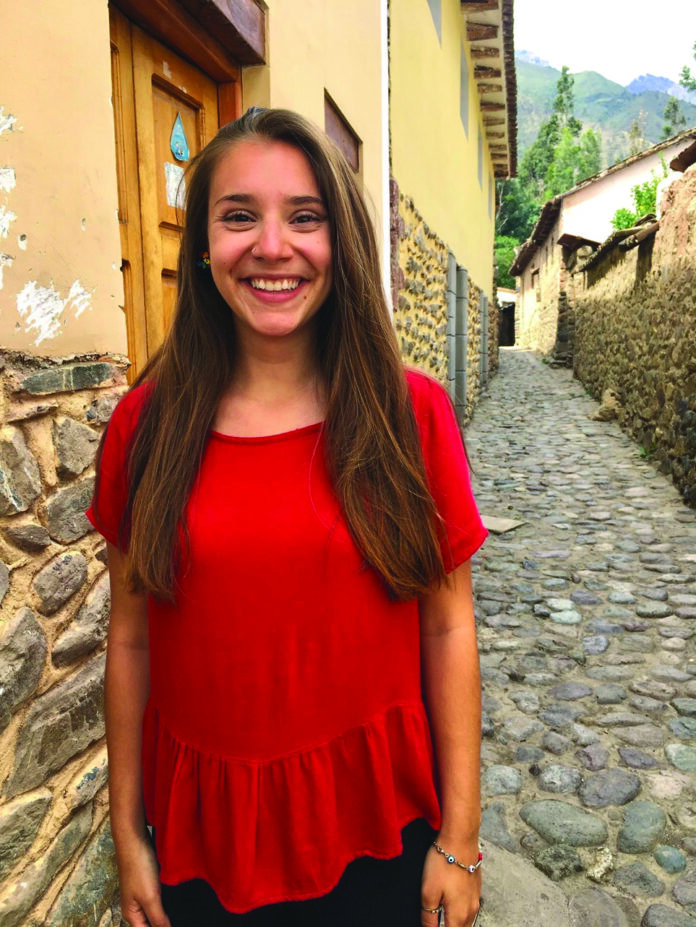Roseangela Hartford is a 2019 Teach for America RGV Corps Member and seventh grade English Language Arts at IDEA Owassa College Prep. TFA asked Roseangela a few questions about her journey to education and what drives her passion for teaching.
What motivated you to apply to join Teach For America and choose to teach in the Rio Grande Valley?
My decision to work in the Rio Grande Valley was rooted in the mission to dedicate my energy to a diverse, vibrant, and predominantly Latinx community where several immigrant families are impacted. During my time at Ursinus College, I instructed an English Learner course for our campus cleaning staff who were forced to live in fundamentally inequitable circumstances both on-and-off campus. Each staff member held a story, oftentimes overflowing with traumatic events in their immigrant transition process, that compelled me to rethink my entire purpose. The precious and transformational moments I shared with my English Learner classroom affirmed that both educational inequity and immigrants’ rights are interdependent battles that should be fought harmoniously. Moving to the valley and serving the Hidalgo County community also stems from my experiences working in two immigration law firm settings in Philadelphia. Sadly, several of my clients had horrific experiences during their transition to the U.S. that largely took place in the county where I currently reside and teach. Teach For America RGV is leading by example for grassroots activism through an educational platform with the long-term goal to completely reinvent every narrative minimizing the limitless brilliance and excellence of the valley. TFA RGV’s work is notable and takes cultural competency, inclusion, and social emotional concerns of students and families as a vocational commitment rather than an occupation. The exceptional community efforts and high-need for child advocates both in and outside the classroom made TFA RGV my first choice.
What has been one of the most surprising things you’ve come to learn about education during your time as a classroom leader?
One of the most surprising things I have learned is how little the U.S. education system invests in the social-emotional needs of students. Rather than understanding the complex trauma several students face, teachers, administrators and policymakers are ignoring how emotional concerns impact the entire learning process. For instance, most schools do not have a licensed social emotional counselor on campus dedicated to solely working with students to support their healing regardless of academic factors. This was deeply shocking when I began to build relationships with students and found the endless list of overlooked traumatic experiences students have begun to normalize and endure without appropriate support. My work is rooted in the belief that activism, healing, radical love, and empowerment can be cultivated in the classroom. However, those trauma-informed visions and academic achievement should not be mutually exclusive, but rather work as a cohesive mission to ensure we are empowering students in every way possible.
If you could change one thing for your students, what would it be?
Without a doubt, I would change the way our education system places more value on standardized test scores than holistic wellness and inclusive learning strategies. Despite the fact our education system promotes and enforces high stakes testing as a predictor of achievement, my students will be global leaders and change agents regardless of their test scores. As we are currently discussing how society influences our identity in my 7th grade classroom, I wish that society, at every level of government, was encouraging my students with relevant, empowering, and comprehensive narratives of success that goes beyond STEM. I wish that creative projects, speeches, poetry, and art were given an ounce of the attention that we spend on preparing our students for tests. The focus on testing as a predictor for achievement disproportionately impacts English learners when there are countless other ways to measure mastery of content and intellectual depth.
At a time when more people recognize the inequity of education in public schools, Teach For America has an important role to play. What do you view as Teach For America’s role in creating systemic change?
Teach For America plays a critical and controversial role in actually fighting educational inequity. While TFA helps to fill the gaps of teacher shortages and restore a sense of justice in the classroom, I also see TFA playing a pivotal role in making sustainable and innovative changes to the very core and foundation of the U.S. education system. TFA has the potential to create systematic change as long as they truly listen to the niche and unique community needs and respond with qualified and supportive programs that go beyond just filling the gap of teacher openings.
Can you share an anecdote or personal experience from your classroom or school?
With seemingly endless memories from my classroom, I hold close to my heart our slam poetry projects and presentations. Students spoke with conviction, eloquence, and passion ranging in issues such as racism, depression, bullying, homophobia, politics, climate change, human rights, sexism, body shaming, and the education system. Hearing the robust analysis and reflection of students when given the freedom to express their emotions without judgement evoked deep emotions from every student. It was in this moment empathy and vulnerability became normalized parts of our English class.
___
Teach for America (TFA) is the national nonprofit organization committed to the idea that one day, all children will attain an excellent education. To this end, the organization partners with communities to inspire the next generation of leaders to address unequal educational opportunities that fall along the lines of race and class. They begin this lifelong work with an initial two-year commitment to teach in some of the nation’s most underserved schools. Here in the Rio Grande Valley, 61 corps members work in seven districts across the region.





